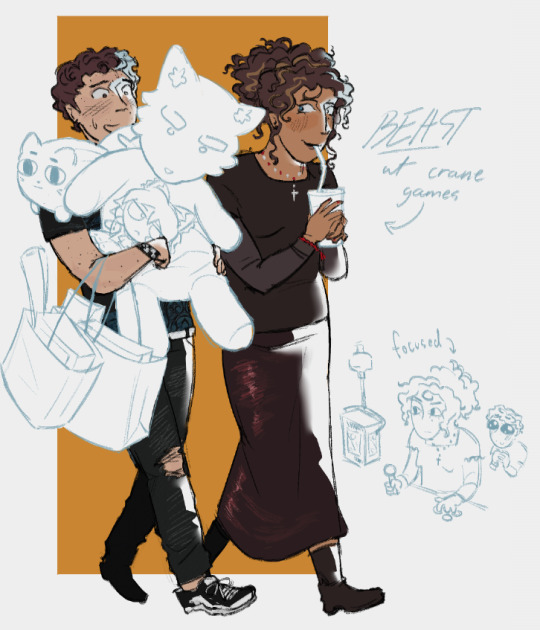#mis-types
Text
smacking people i don't talk to regularly to show that im still thinking of them with my paw
6 notes
·
View notes
Photo

hermit a day may 17: favorite pets! ive already been adding a couple of pets to the hermit drawings, but for this prompt it had to be Lulu and Mi Amore <3
this kinda reminds me of those illustrations in bella sara books lmao, i used to try to redraw those as a kid... i think 8 year old me would enjoy this drawing
#also tried to make Lulu more of an elegant/sporty type horse and Mi Amore a bit more working-horse? idk why really#hermitaday#bdoubleo100#(<- technically? i guess?)#hermitcraft#my art
1K notes
·
View notes
Text
For me the ‘canon homoerotic subtext’ between brick!Valjean and Javert is really more about the parallels between Javert and Eponine, who are explicitly set up as character foils.
Brick!Javert isn’t obsessed with Valjean like he is in adaptations. He’s not psychosexually obsessed with hunting him down; he really doesn’t seem to think of him as being any different than any other criminal—- he doesn’t think about Jean Valjean much at all until after Jean Valjean saves his life.
But after the barricades, Javert’s sudden weird desperate emotions about Jean Valjean are like a twisted mirror of his character foil Eponine’s weird desperate emotions for Marius.
Some guy takes pity on them, and extends them a bit of basic impersonal kindness— and they react by descending into this violently self-destructive suicidal admiration built on self-loathing. They’re both described as making themselves the “dogs” of Marius/Valjean, the dogs of people who barely remember they exist.
And anyway! I think there is potential to explore things there in analysis and fanfiction
#les mis#les mis letters#ANYWAY#this is why my post-seine fanfic is like that#and why i tag it so strangely#how do you tag ‘javert has whatever Eponine had. but for Jean Valjean’#but yeah I keep saying I’m gonna write a full length post about this parallel#but then I don’t#the Valjean/javert and Eponine/Marius parallels are real though#I feel like before I write and overlong masterpost on that#id have to put one together that’s just about the javert-Eponine parallels alone#and yeeg#so much to write#idk if this is coherent I’m typing late and tired 😂#I feel like this is why I often don’t feel the same way as other valvert fans tho
261 notes
·
View notes
Text
Nadie tendría que tener un avión privado la verdad. Todos los vuelos deberían ser autorizados estrictamente por el estado y tenés que justificar por qué tomar un avión en vez de un tren. Los aviones son solamente herramientas para el desarrollo del estado. Aeroflot type of shit.
#aerolíneas bajo mi gobierno unipartidario#cosas mias#si debería haber cohetes espaciales y muchos. pero todos bajo una especie de agencia espacial internacional#starfleet type of shit
86 notes
·
View notes
Text
I had a really strange yet vivid dream where Enjolras lived in between terminals at CDG Airport all Phantom of the Opera-esque and he fell deeply in love with Grantaire as he was very kindly showing a tourist family the way to their gate.
#cackling as I type this out#les mis#les miserables#grantaire#enjoltaire#enjolras#exr#les amis#les amis de l'abc
67 notes
·
View notes
Text
By now, y’all might be familiar with that poll I posted awhile ago about different actor’s interpretations of a certain line in the Les Mis musical. Well, now I’m gonna talk about it. Hooray!
”Forgive me, sir. I would not dare” is such a fascinating line to me partially because of how it takes the place of an entire series of monologues from a chapter in the novel. For time’s sake, the musical condenses the runaway cart incident, Javert voicing his suspicions about the mayor, and the result of his suspicions into one scene which puts it in a different context. Instead of reporting Madeleine and then gaining information about Valjean’s lookalike as he does in the novel, Javert instead finds himself suspicious of Madeleine despite already knowing that “Jean Valjean” has been recaptured. Surprisingly, this doesn’t significantly change Javert’s motivation for taking such an apologetic tone. In both cases, he chided himself not for being suspicious of the mayor, but for being so in a way that trusted his own feelings more than that of the law. “Forgive me, sir. I would not dare” is not only a fumbled apology, but a testament to how rare it is for him to disregard his superiors. It’s a moment to understand his philosophy pre-Stars. Not only that, but it provides different information than Stars. It shows how the strictness of Javert’s moral code doesn’t only make him seem authoritative, but can also degrade him.
But an apology is not inherently degrading. So why is it in this case? This is where actor interpretation becomes important. The effect comes from the tone, not the words.
I’ve noticed a few different ways actors tend to portray this line. The first involves more of the pleading present in the novel. This interpretation comes across as somewhat panicked, trying to convey a plea for forgiveness and being appalled by his own actions simultaneously. This is beneficial in the way that it can clearly draw the audience’s attention to the difference between this line and the more composed lines surrounding it. Additionally, this particular version of the line tends to split into two subcategories. One is more reserved, contrasted with the previous, more confident lines and effectively communicates abashment. The other is more distressed and makes the apology seems urgent. Both subcategories serve the same purpose though.
The second interpretation is much more even-toned than the first. With this one, Javert maintains his composure and the apology rarely comes across as anything other than the result of a momentary lapse in judgment. This version of Javert tends to prioritize professionalism over any kind of charisma. My opinion of this interpretation varies depending on the actor.
The third interpretation is probably my least favorite. It has little to no sincerity and makes it clear that Javert is still quite suspicious of the mayor, but simply doesn’t want to alarm him. The apology has absolutely none of its original meaning. This interpretation irks me because it takes away an aspect of this character I find very interesting (the fact that Javert is a bootlicker in the most genuine way possible).
Anyway, I’m not sure how to end this. I’m might‘ve not really had a point here, but that’s okay. I just really like this line.
62 notes
·
View notes
Text

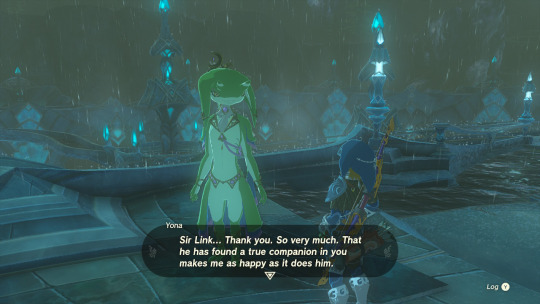


#very cool of yona to let me date her husband#totk#sidlink#edit: MY APOLOGIES FOR THE MIS-TAG#i typed the wrong ship name earlier
140 notes
·
View notes
Text
Need to stop saying “at the end of the day” because “At the end of the day you’re another day older, and that’s all you can say for the life of the poor. It’s a struggle it’s a war, and there’s nothing that anyone’s giving. One more day standing about, what is it for? One day less to be living. At the end of the day you’re another day colder. And the shirt on your back doesn’t keep out the chill. And the righteous hurry past, can’t they hear the little ones crying? And the winter is coming on fast, ready to kill. One day nearer to dying. At the end of the day there’s another day dawning. And the sun in the morning is waiting to rise. Like the waves crash on the sand, like a storm that’ll break any second; there’s a hunger in the land, there’s a reckoning still to be reckoned. And there’s gonna be hell to pay... at the end of the day.”
#literally every time I start typing it now my brain's like FUCK WAIT LES MIS TIME#les miserables#les mis musical#bern speaks
480 notes
·
View notes
Text
Nimona is a great example of non-fandom-ified found family but I guess thats whats yall are doing anyway
#he is not her dad she is not her daughter. to me. let it be a weird mix of chaos cousins who are basically siblings and#the 'older' sibling cant be identified because . i mean. ballister is 100% a middle child but no one who doesnt know him can tell#shes 1000 years old Dude.#theyre the cool niefling and uncle. the cousin chaos duo. siblings who enable each other. i could go on.#anywho#my post#nimona#<33333#NOT ME MIS-TYPING THE FIRST TAG i aint gonna fix it. bal he/her. ok. whay about it lol
163 notes
·
View notes
Text
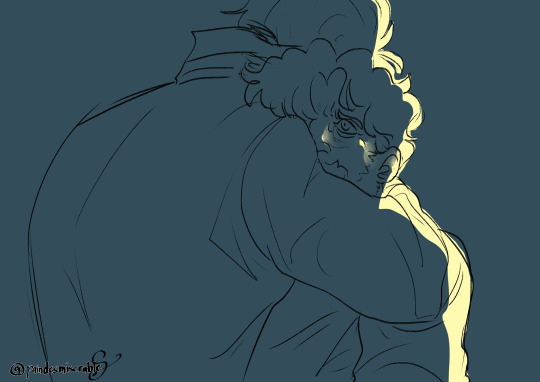
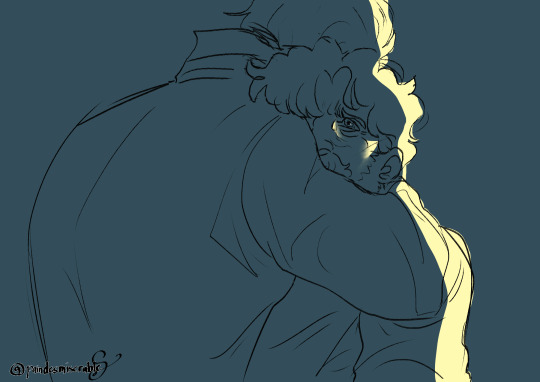
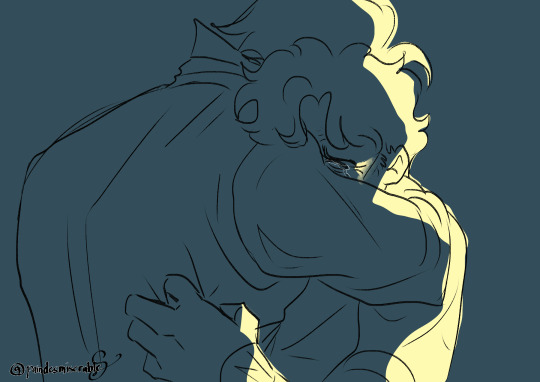
The intimacy of being understood
#les mis#les miserables#les miserables fanart#valjean#jean valjean#javert#valvert#implied..?#anyways Valjean deserves a hug#he seems like the type of person who would've forgotten how it felt like to hug someone aside from Cosette#moreso a hug from someone who sees him as Jean Valjean
384 notes
·
View notes
Text
keep drawing javert's sideburns like he's a sheep that escaped the farmer three years in a row.
#so thick it makes me sick#well then#i went to type in 'thick and curly' but that tag popped up#star draws#les mis#javert
85 notes
·
View notes
Text
I haven't even published anything gross yet and I've already had to confiscate the anon comments from my pershona five fics smh 😔
#mis-types#side note my internet is still not here so I'm trying not to use socmed so much so my data doesn't disappear#side side note I'm considering spite fic again thanks to zeda's galaxy brain
15 notes
·
View notes
Text

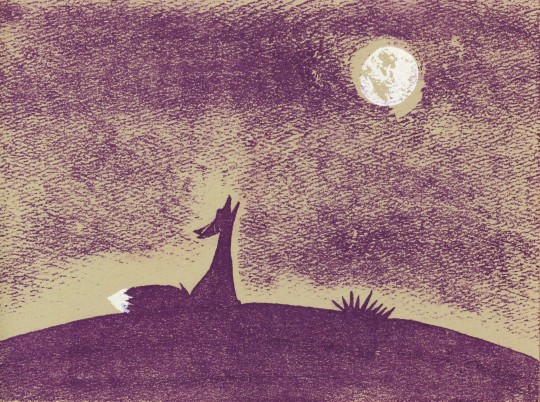
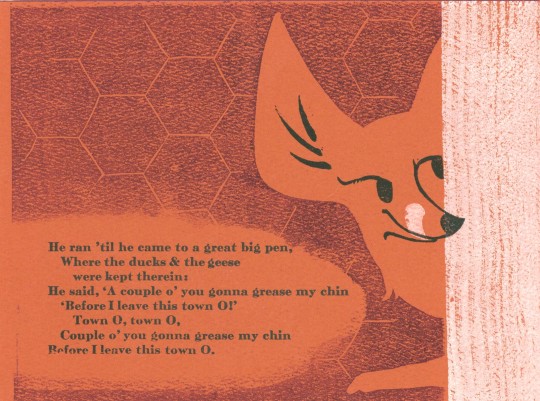


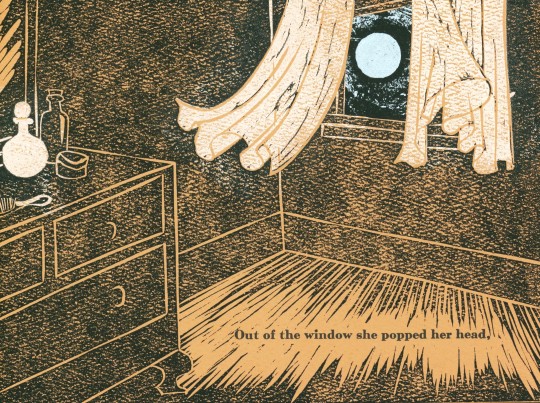


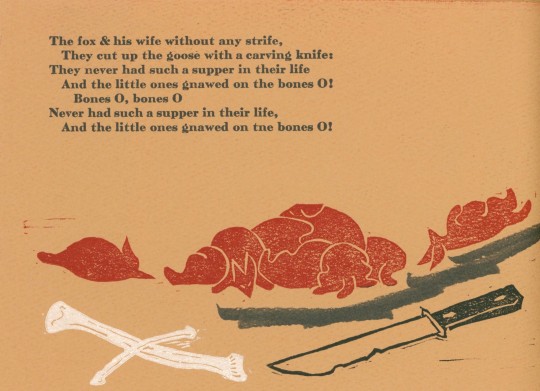


It's Fine Press Friday!
Today's book includes text from an old English folk song with prints by Polly B. Johnson of the Press of the Unseen Unicorn in San Antonio, Texas entitled The Fox. The Fox is a traditional English folk song, the earliest versions of which are from the 15th century and written in Middle English. It is number 131 in the Roud Song Index. This song has also been used and modified throughout the modern age, and has been covered by popular musicians and groups from 1950s to today.
The story is about a fox that goes into a town to terrorize the people and animals living there, while also gathering food for his family living outside the town limits. As the fox goes back to his family, the children exclaim about how wonderful the food he has gathered from the town is, and request that he go back frequently for more exploits.
The Fox was printed with hand-set Masterman type using a Golding Pearl Letterpress on Teton Text Paper, except for the black paper, which is Canson Mi Teintes paper, in an edition of 50 copies. The prints were made using linoleum, wood, and torn chipboard. The cover is made of a rough woven cloth and includes a bone that was boiled, washed, and soaked in Clorox, and dipped in shellac. Our copy is another gift from the estate of our late friend Dennis Bayuzick.
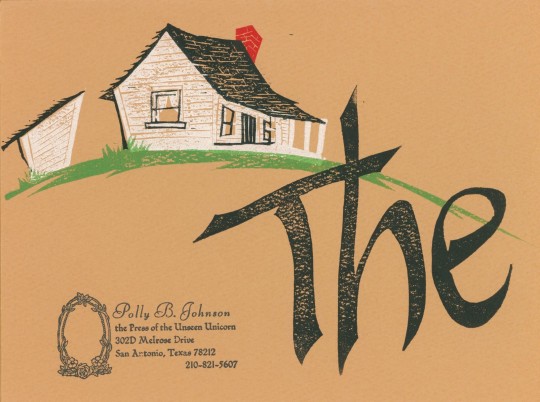
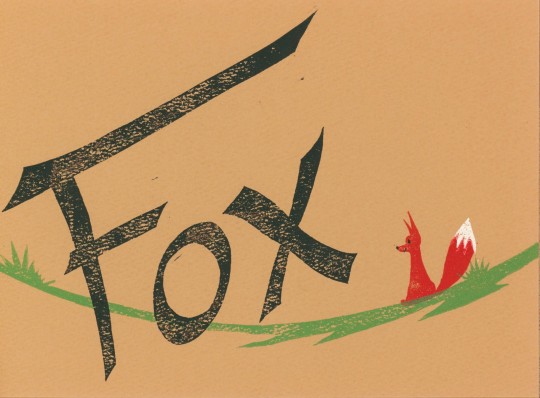
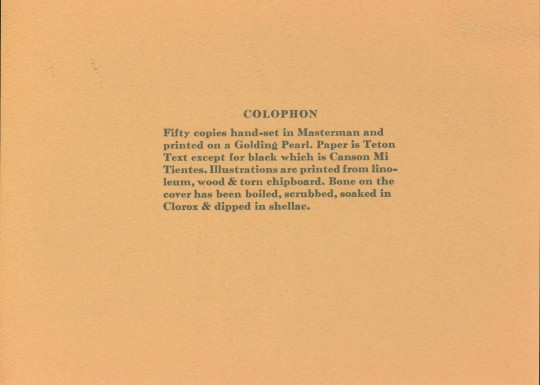
View another book by Polly B. Johnson.
View other books from the collection of Dennis Bayuzick.
View more Fine Press Friday Posts.
– Sarah S., Special Collections Graduate Intern
#Fine Press Friday#fine press fridays#Polly B. Johnson#Press of the Unseen Unicorn#The Fox#english folk songs#folk songs#fine press printing#fine press books#fine press publishing#Masterman type#teton text paper#canson mi teintes paper#linocuts#woodcuts#chipboard print#medieval folk songs#15th century folk songs#roud song index#roud 131#Dennis Bayuzick#Sarah S.
121 notes
·
View notes
Text
heard about the exr kiss on 10/21, unfortunately, i am unable to give it too much thought or else i will burst into flames!
#les mis#les mierables#enjolras#grantaire#enjoltaire#exr#deciding whether to type exr or enjoltaire is a real choose your fighter moment#what do you mean enjolras and grantaire kissed on stage and i wasn't there
75 notes
·
View notes
Text
*does a horrible fuckin blinker*
Heugh- Did you know that javert can SEE in the DARK!!!
*passes out*
#les mis#les miserables#inspector javert#javert#my timbers are shivered#and my boots are shaking#i wanna smash faces with him fr#like horrible awful and painful to watch type of kiss#i want our teeth to clash#and i want us to be sneering at each other#-quote javert
47 notes
·
View notes
